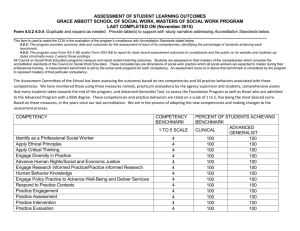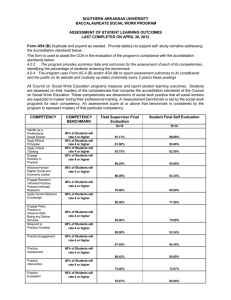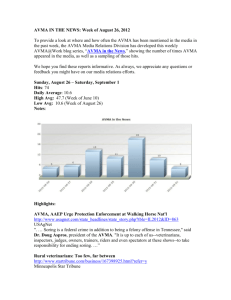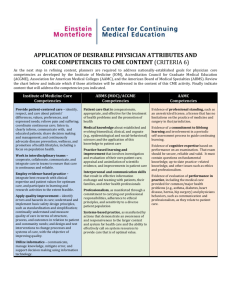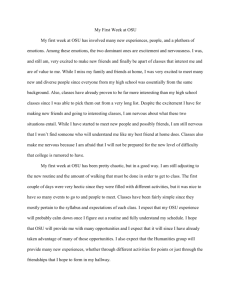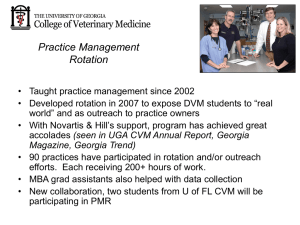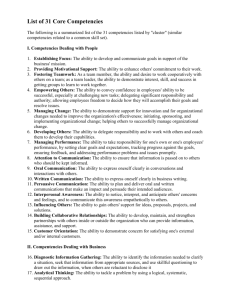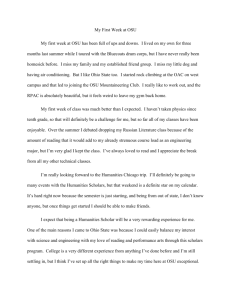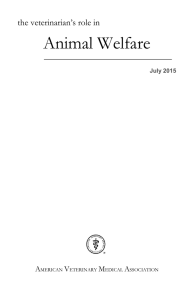Student Forum on Clinical Competencies Introductions…
advertisement
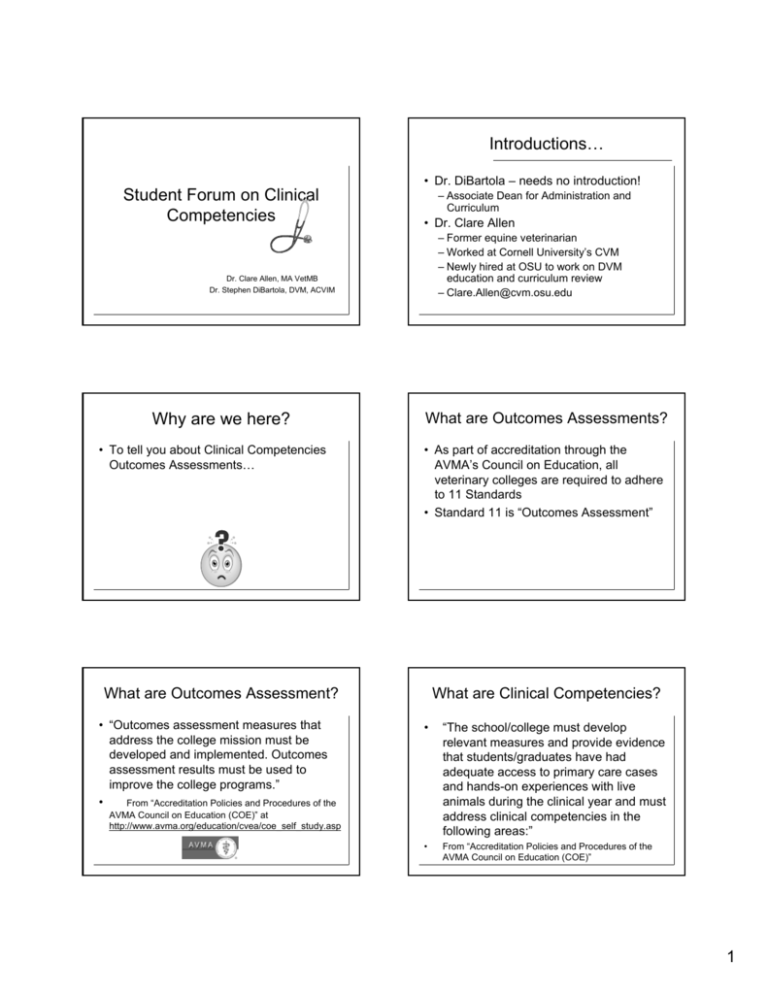
Introductions… • Dr. DiBartola – needs no introduction! Student Forum on Clinical Competencies – Associate Dean for Administration and Curriculum • Dr. Clare Allen – Former equine veterinarian – Worked at Cornell University’s CVM – Newly hired at OSU to work on DVM education and curriculum review – Clare.Allen@cvm.osu.edu Dr. Clare Allen, MA VetMB Dr. Stephen DiBartola, DVM, ACVIM Why are we here? • To tell you about Clinical Competencies Outcomes Assessments… What are Outcomes Assessments? • As part of accreditation through the AVMA’s Council on Education, all veterinary colleges are required to adhere to 11 Standards • Standard 11 is “Outcomes Assessment” What are Outcomes Assessment? • “Outcomes assessment measures that address the college mission must be developed and implemented. Outcomes assessment results must be used to improve the college programs.” • From “Accreditation Policies and Procedures of the What are Clinical Competencies? • “The school/college must develop relevant measures and provide evidence that students/graduates have had adequate access to primary care cases and hands-on experiences with live animals during the clinical year and must address clinical competencies in the following areas:” • From “Accreditation Policies and Procedures of the AVMA Council on Education (COE)” AVMA Council on Education (COE)” at http://www.avma.org/education/cvea/coe_self_study.asp 1 Why? AVMA COE’s Areas of Clinical Competency 1. Comprehensive patient diagnosis (problem solving skills), appropriate use of clinical laboratory testing, and record management 2. Comprehensive treatment planning including patient referral when indicated 3. Anesthesia and pain management, patient welfare 4. Basic surgery skills, experience, and case management 5. Basic medicine skills, experience, and case management 6. Emergency and intensive care case management 7. Health promotion, disease prevention/biosecurity, zoonosis, and food safety 8. Client communications and ethical conduct 9. Strong appreciation for the role of research in furthering the practice of veterinary medicine • • Consumer Protection – The public needs to know that their veterinarian is clinically competent right out of school • Student education – You need to know what is expected of you, and how to achieve it • Program improvement – We need to know the weaknesses and strengths of our program and continue to improve it From “Accreditation Policies and Procedures of the AVMA Council on Education (COE)” What does this mean for the OSU CVM? How do we do this? • As part of accreditation in 2007, OSU CVM had to show that we would implement and track a system of clinical competencies outcomes for DVM students in the near future • Come up with a list of core clinical competencies that are measurable • Make sure that there are adequate opportunities for you to practice these skills • Track and document that you all have at least one experience of successfully completing each of these skills before you graduate What does this mean for YOU? What does this mean for YOU? • Starting in the Autumn Quarter 2008, you will be issued with a booklet listing OSU’s Core Clinical Competencies • As you progress through your VME III courses, and on into clinical rotations, you will be expected to have clinicians (faculty, instructors, residents and interns) and technicians “sign off” on these skills as you perform them 2 What does this mean for YOU? What does this mean for YOU? • Student Responsibilities: – Get skills checked off – Maintain records – some kind of digital backup to be determined… watch this space – Honesty – responsibility to your profession, future clients and to yourself What we need NOW… • BOTTOM LINE: This is good news for you! – Makes it clearer what you need to achieve in clinics – Makes us more accountable to provide those opportunities and improve the program Questions? • Student feedback – We value your thoughts and comments about this process during implementation and maintenance • Understanding – This is a work in progress – We will continue to refine it as we go along, and we need your understanding and feedback to make it work and to make it better 3
